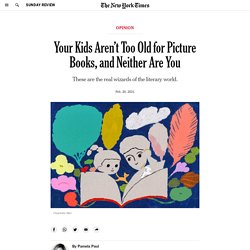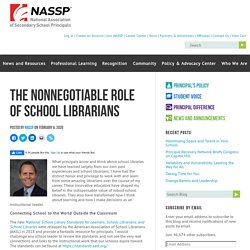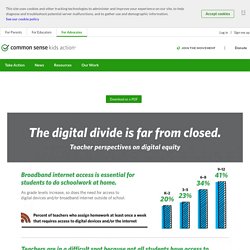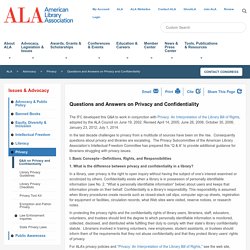

Your Kids Aren’t Too Old for Picture Books, and Neither Are You. Picture books are the carrot that motivates the emerging reader, frustrated and bored silly by the phonemic progression from cat to mat.

Unlike most “early readers,” picture books are vibrant and appealing in a way likely to give children who grow up swiping iPads the stimulation they’ve come to expect. Picture books also offer much more sophisticated language and storytelling, the assumption being that adults are reading those words aloud, so children needn’t struggle over them themselves. All this sounds like a lot of work and homework, so let’s be clear: Picture books are also one of the literary world’s great pleasures. This Is What Being an Elementary School Librarian Means to Me Today. In one way or another, I have worked in the world of kids’ books for more than two decades now — yet, it wasn’t until I began my job as a librarian four years ago that I truly realized how much books connect and create community. As an elementary school librarian, I am the one person on campus who interacts with every student in every class on a weekly — and for many, daily — basis.
My hours are spent cultivating connections with my 600 students, learning their reading levels and interests, putting the right book in their hands and creating a warm, welcoming, and, yes, noisy space where they feel safe and know they belong. Children’s books and literacy are my passions and I am grateful for every day that I get to share this love with kids. The Joyful Teacher Librarian - Schoolwide Reading Culture. ROLES of the SCHOOL LIBRARIAN. The Nonnegotiable Role of School Librarians. What principals know and think about school libraries we have learned largely from our own past experiences and school librarians.

I have had the distinct honor and privilege to work with and learn from some amazing librarians over the course of my career. These innovative educators have shaped my belief in the indispensable value of robust school libraries. They also have transformed how I think about learning and how I make decisions as an instructional leader. Connecting School to the World Outside the Classroom. "Librarians Don't Shush Anymore!" And Other Things I Wish Were True.
Philly’s got the worst school librarian ratio in the U.S. This group is protesting. Teach More, Librarian Less, Say SLJ Leadership Summit Panelists. School Library Journal. Dear School Leaders: Own Your Choices. The Homework Gap: Teacher Perspectives on Closing the Digital Divide Infographic.
Your privacy is important to us.

When you sign up as an advocate: Common Sense Kids Action will send you periodic email alerts on legislative activity that impacts your community;You will have the opportunity to share your actions and these issues with your friends by sending them Common Sense Kids Action alerts and issues;Common Sense Kids Action may share with our affiliates and like-minded coalitions working on behalf of children the email address and/or zip code that you provided to us when you signed up to participate in Common Sense Kids Action.We will otherwise use your information in accordance with our privacy policy. You may unsubscribe from receiving emails from Common Sense Kids Action at any time by clicking the unsubscribe link at the bottom of all Common Sense Kids Action emails.
School Librarians Can Save Democracy. I submitted a video proposal to TED.

I've done this before, but my quest ended there. This year, I had the extraordinary experience of attending the conference. I have another post brewing about my takeaways - all 88 of them - so I won't elaborate too much, other than to say I was inspired. Truly. On the last day, it was announced that the conference organizers were accepting one minute proposal videos. The TED2020 conference theme is UNCHARTED, so the guiding questions were:Are you working on a novel invention, design or vision? The second question applies to my idea. A universally shared frustration: (3) Post Truth: Fake News and a New Era of Information Literacy. Readbrightly. Mirrors-Windows-and-Sliding-Glass-Doors.
Questions and Answers on Privacy and Confidentiality. In the last decade challenges to privacy from a multitude of sources have been on the rise.

Consequently questions about privacy and libraries are escalating. The Privacy Subcommittee of the American Library Association’s Intellectual Freedom Committee has prepared this “Q & A” to provide additional guidance for librarians struggling with privacy issues. I. Basic Concepts—Definitions, Rights, and Responsibilities 1. In a library, user privacy is the right to open inquiry without having the subject of one’s interest examined or scrutinized by others. In protecting the privacy rights and the confidentiality rights of library users, librarians, staff, educators, volunteers, and trustees should limit the degree to which personally identifiable information is monitored, collected, disclosed, and distributed while fulfilling their duty to comply with their state’s library confidentiality statute. 2. 3. 4. 5.
See : Chmara, Theresa. 6. Chmara, Theresa. Why school librarians matter: What years of research tell us - kappanonline.org. When schools have high-quality library programs and librarians who share their expertise with the entire school community, student achievement gets a boost. Since 1992, a growing body of research known as the school library impact studies has consistently shown positive correlations between high-quality library programs and student achievement (Gretes, 2013; Scholastic, 2016).
Data from more than 34 statewide studies suggest that students tend to earn better standardized test scores in schools that have strong library programs. Further, when administrators, teachers, and librarians themselves rated the importance and frequency of various library practices associated with student learning, their ratings correlated with student test scores, further substantiating claims of libraries’ benefits. Skeptics might assume that these benefits are associated mainly with wealthier schools, where well-resourced libraries serve affluent students.